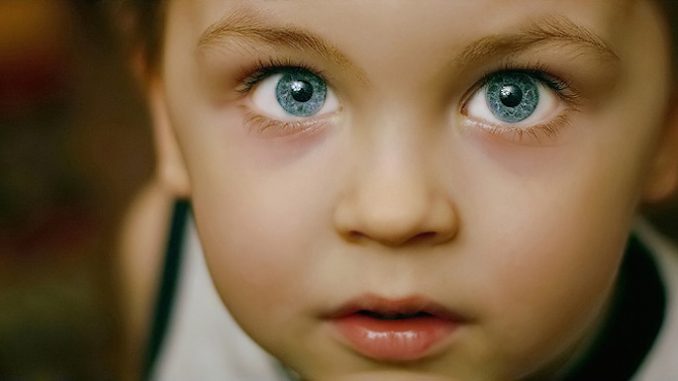A rising number of American psychologists have suggested that children who are diagnosed as suffering from ADHD or ADD may actually be “Indigo Children” who possess special psychic powers.
Since the 1990’s, a growing number of medical professionals have dismissed the traditional ADHD diagnoses associated with long-term social and behavioral health problems, and have instead sided with their parents who insist that they possess supernatural powers.
https://pinterest.com/pin/831758624905444781/
Critics argue that not treating children with ADD and ADHD can lead to long-term social and behavioral health problems.
VICE’s Gavin Haynes heads to New York to meet with grown Indigo Children born in the 1990s to understand more about the movement and to find out how they feel about their unorthodox upbringing and perceived psychic gifts.
On his journey for answers, Haynes has his aura read, undergoes a holistic dentistry examination by a mother and daughter Indigo pair, and meets the rap duo The Underachievers, who preach Indigoism as a way of life through their music.
How to recognise an Indigo Child
What are the behavioral patterns of Indigos?
- They are born feeling and knowing they are special and should be revered.
- An indigo knows they belong here as they are and expect you to realize it as well.
- These children are more confident and have a higher sense of self-worth.
- Absolute authority, the kind with no choices, negotiation, or input from them does not sit well. The educational system is a good example.
- Some of the rules we so carefully followed as children seem silly to them and they fight them.
- Rigid ritualistic systems are considered archaic to an indigo child. They feel everything should be given creative thought.
- They are insightful and often have a better idea of method then what has been in place for years. This makes them seem like “system busters.”
- Adults often view an indigo as anti-social unless they are with other indigos. Often they feel lost and misunderstood, which causes them to go within.
- The old control methods like, “Wait till your father gets home,” have no affect on these children.
- The fulfillment of their personal needs is important to them, and they will let you know.
These are the characteristics of an indigo as stated in The Care and Feeding of Your Indigo Child:
- Strong willed
- Born in 1978 or later
- Headstrong
- Creative, with an artistic flair for music, jewelry making, poetry, etc.
- Prone to addictions
- An “old soul” as if they’re 13 going on 43
- Intuitive or psychic, possibly with a history of seeing angels or deceased people
- An isolationist, either through aggressive acting-out or through fragile introversion
- Independent and proud, even if they’re constantly asking you for money
- Possess a deep desire to help the world in a big way
- Wavers between low self-esteem and grandiosity
- Bores easily
- Has probably been diagnosed as having ADD or ADHD
- Prone to insomnia, restless sleep, nightmares, or difficulty/fear of falling asleep
- Has a history of depression, or even suicidal thoughts or attempts
- Looks for real, deep, and lasting friendships
- Easily bonds with plants or animals.
If you possess 14 or more of these traits you are an indigo. If you possess 11 to 13, you’re probably an indigo in training. If you’re an adult with these traits you could be a “lightworker.”





